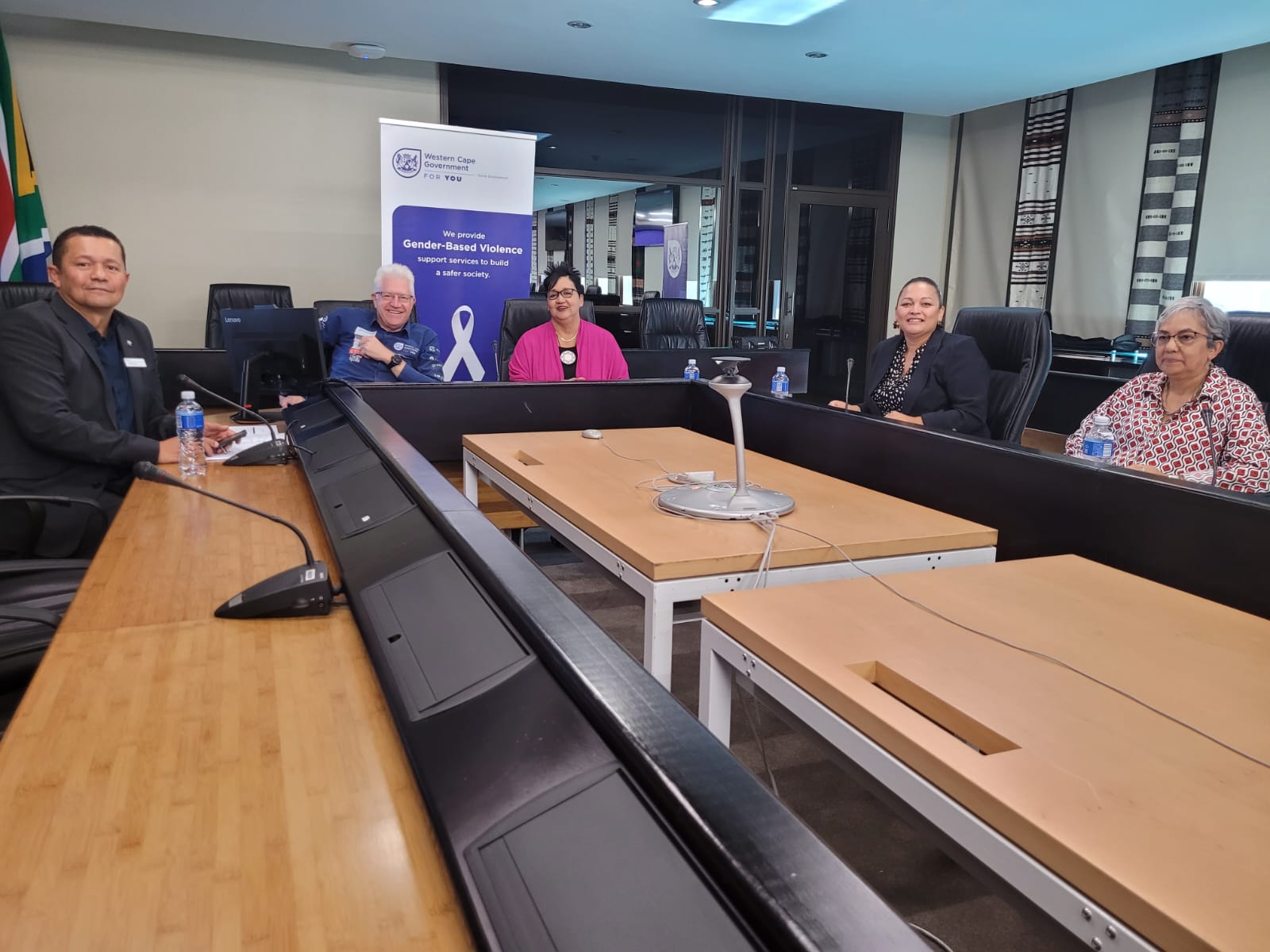
News
Unpacking toxic masculinity in “Courageous Conversations”
The first Gender-Based Violence (GBV) Courageous Conversations webinar for 2023 kicked off with the topic: “Understanding Toxic Masculinity.”
Since 2021, Western Cape Minister of Social Development, Sharna Fernandez has been engaging staff and officials in quarterly “Courageous Conversations”. This series is a key platform in strengthening collaboration, co-ordination, and effectiveness of the Western Cape Government’s (WCG) efforts to address GBV.
Monday’s webinar, hosted by Minister Fernandez and Premier Alan Winde, was facilitated by Process Facilitator Dr Rama Naidu. The panelists have decades worth of expertise between them: Dr Keith Cloete, head of Western Cape Health Department, Dr Heidi Sauls, Deputy Director of Policy & Research in the Police Oversight and Community Safety Department, and Dr Lucille Meyer, CEO of Chrysalis Academy.
Premier Winde said: “These conversations are critical, because they must lead to action. We are looking at how we see each other and how we position ourselves in relation to each other. Courageous Conversations must have courageous actions attached to them.”
Minister Fernandez said: “Following this webinar, we will have to expand on this topic of ‘toxic masculinity’ as there is so much more to delve into. As Western Cape Government employees, we should be the ambassadors for change. We should be mindful of our language and how we behave, but also look at others. Let’s become ethical disruptors, to hold up a mirror and say: ‘Your behaviour creates discomfort’ or ‘Your behaviour is creating a safe space.’”
This thought of accepting personal responsibility to effect change was shared by Dr Cloete: “We can choose a more nurturing societal gender culture. You have the choice to create a more nurturing gender culture. We need positive role models to shift the negative impact of gender stereotypes, we need men who cry, we need men who choose not to fight. We need a whole-of-society approach to shift gender and social norms.”
Dr Sauls has over the years engaged with boys and men, especially those in conflict with the law. This has helped her to understand the complexities of toxic masculinity. “Increased research is required to better understand the drivers, motives and situations that encourages violence, and urgent action is needed to understand male-on-male violence. Our understanding of toxic masculinity is over-simplified,” said Dr Sauls.
The panelists agreed that “toxic masculinity” is an attribute that transcends gender constructs. It is not only heterosexual males who can be guilty of toxic masculinity, but those identifying as another gender as well. It’s about the inequality of power between individuals.
Dr Meyer said: “We’ve got to train men to understand their emotional landscape, so that they can name their emotions. We need to know that the struggle to eradicate GBV is an inter-generational one. It’s going to take a long time, but we’ve got to stay on the path. We need to ask how a human being becomes so dehumanized that they end up committing violence?”
This is the first in a series of Courageous Conversations that will be taking place this year, with more to follow covering a range of topics.
Monique Mortlock-Malgas
Spokesperson to MEC Sharna Fernandez
Department of Social Development
Tel: 084 775 2975
E-mail: Monique.Mortlock@westerncape.gov.za
Website: www.westerncape.gov.za


